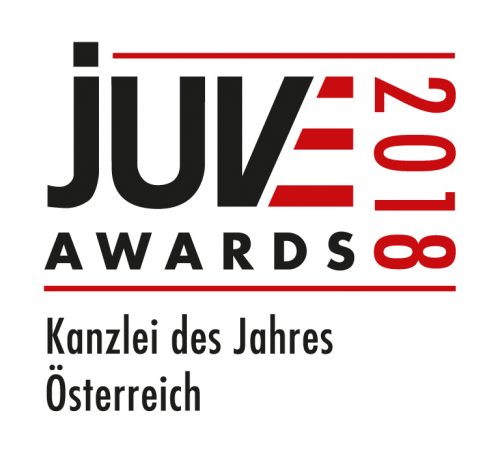Whistleblowing reporting systems
We help with implementation and processing!

A draft amendment to the Austrian Cartel and Competition Act is expected at the beginning of 2021. Among other things, this could result in changes to the notification thresholds in merger control and a proposal to give greater consideration to ecological aspects in the enforcement of antitrust laws. At a European level, the Commission launched two legislative initiatives to regulate digital markets just before the turn of the year. They will be discussed by the European Council and Parliament this year. Moreover, interesting proceedings are pending before the European courts (e.g.: C-151/20, Nordzucker; C-267/20, Volvo and DAF).
In 2021 it could actually come: the Austrian Limited, which is essentially a corporation to which the strict rules on capital raising and maintenance do not apply. The goal is to facilitate the participation of employees and to have an easier transferability of shares. These changes could bring a new legal form – the Austrian Limited – but also innovations / improvements regarding private companies with limited liability and joint stock corporations.
In 2021, general meetings will increasingly take place online. Furthermore, the possibility of creating notarial deeds digitally, which was created in 2020 due to the COVID pandemic, will also become more and more popular. Certifications and authentications are now also possible electronically.

The great boom in founding foundations is behind us. Nevertheless, there are still numerous constellations in which the establishment of a private foundation is very useful. Particularly, when it comes to dividing assets between family lines or integrating the next generation, establishing a sub-foundation can be a suitable option. However, existing legal uncertainties require some legal adjustments. In 2021, these adjustments may happen.
The rapid online business growth poses new challenges for banks and customers – the expansion of online services, electronic data interchange and customer care via digital communication channels have been massively pushed forward by the restrictions caused by COVID-19 pandemic. Furthermore, there will be stricter standards imposed by the “EBA guidelines on loan origination and monitoring” in the future.

The impacts of hard and partial lockdowns on the Austrian economy are enormous. The consequences are to be mitigated by state aid and legal measures, such as the recently renewed extension for the suspension of the obligation to file for insolvency until March 31st, 2021. It remains to be seen whether the sectors most significantly affected will manage to regain foothold or whether the government measures to promote so-called “Zombie Companies” (companies that would not have been viable even without the pandemic) will lead the way. Moreover, the implementation of the EU Restructuring Directive into national law will also be of interest. So, it remains exciting!

In the course of the Brexit negotiations, the EU and the United Kingdom agreed on the EU–UK Trade and Cooperation Agreement, which has been applied provisionally since January 1st, 2021.
For public procurement law, this agreement provides for the adoption of numerous provisions of the Agreement on Government Procurement (GPA), which is a plurilateral agreement under the auspices of the WTO, as well as regulations on electronic procedures, dispute resolution and SMEs, among other things. In the currently pending infringement proceedings against Austria, the ECJ will deal with an illegal direct award accused by the European Commission and recently confirmed by the responsible Advocate General (C-537/19, Wiener Wohnen). Moreover, it can be assumed that the ECJ will again deal with the issue of “self-cleaning” (C-387/19, RTS infra).

Labor law will continue to be deeply influenced by the consequences of the COVID-19 pandemic, at least for the next few months. Besides a further extension of the special corona short-time work model, that is currently in force until the end of March 2021, a statutory rule on home office is eagerly awaited. Working from home, which has not yet been regulated by law, has grown in importance since the beginning of the pandemic. In addition to the question of whether there should be a right to work from home under certain conditions, issues of reimbursement of expenses, occupational safety and working time laws will have to be addressed by the legislator. The new regulations were originally announced for the end of March, most recently already for January 2021.

State aid law will continue to be shaped by the COVID-19 pandemic, at least in the first half of the year. If the pandemic is not contained quickly, the “Temporary Framework to enable Member States to further support the economy in the COVID-19 outbreak” could be extended again. From an Austrian point of view, the examination and assessment of the Renewable Expansion Law draft by the European Commission will also be of great interest.

At national level, the Renewable Expansion Act is eagerly awaited. Although it should have already come into force on New Year’s Day and replaced the Green Electricity Act, there is still a lot to come. An ongoing EU state-aid proceeding is mainly to blame for this. Moreover, on January 1st, 2020, the amendment to the Emissions Certificate Act 2011 came into force. In Germany, such a law has been discussed for quite some time now, whereas in France and Great Britain it has already been implemented.
The digital offensive, which has accelerated during the pandemic, is continuing: The amendment to the money laundering provisions of the Financial Markets Anti-Money Laundering Act (Fm-GwG), planned for the beginning of 2021, is intended to enable credit institutions to carry out their due diligence obligations in connection with money laundering by means of artificial intelligence technologies.
Furthermore, as part of the implementation of the Digital Finance Package, an evaluation of the second Payment Services Directive is to take place at the end of 2021 — changes in the Payment Services Act 2018 could follow. This applies in particular to the facilitation of instant payment systems, which are intended to enable payments in real time regardless of (bank) opening times.

The European Commission is planning to revise the design protection (so-called “registered design”). In terms of content, it will be clarified in more detail what can be protected as a design (e.g. the protectability of digital graphic user interfaces or the interior design), the scope of the registered design rights granted is to be broadened (e.g. to better combat the transit of counterfeit goods) and the list of restrictions is to be expanded (e.g. based on the more comprehensible catalog of restrictions in EU trademark law). In addition, the focus will be on the pricing system since a further harmonization within the internal market will be sought. Above all, the repair clause is to be implemented at national level.
The “sharing economy” is to be incorporated more strongly in the energy industry this year. As part of the – somewhat delayed – Renewable Expansion Act, the so-called Renewable Energy Communities will be implemented into national law. Individuals, SMEs and local authorities will generate, store and consume energy from renewable sources regionally. Moreover, a non-discriminatory access to energy markets and an attractive funding system might result in an economic advantage. Interesting energy concepts and business models for municipalities, business parks and regions with a large number of similar structures (e.g. hotels) could result from this.
Last year, a bill was introduced (351/A) which requested that legal transaction fees should be abolished without replacement. The reason for this was that the adequacy of legal transaction fees should be called into question, especially since they originally represented “paper consumption taxes”. The matter was assigned to the Justice Committee in February 2020, but no consultations have yet been started (which may be due to the current Corona crisis). It remains to be seen if this matter will be dealt with in 2021.

The European Commission has launched an infringement procedure against Austria on the question of the conformity of the re-granting system related to water law under EU law. If the existing regime actually falls, innovative solutions will be needed to protect those previously entitled.
Since the transposition period for the recent Telecommunications Directive (European Electronic Communications Code) has expired, it will probably be implemented in the TKG 2020 in the first half of the year with a little delay. On the basis of the revised TKG 2020, for example, the important expansion of the network infrastructure (keyword: connectivity) is to be promoted, so-called over-the-top services are to be included and consumer rights are to be significantly improved.
The ePrivacy Directive remains unaffected by the directive and the TKG 2020. The ePrivacy Directive was supposed to be replaced by the ePrivacy Regulation and should have come into force at the same time as the General Data Protection Regulation. If the Portuguese and Slovenian Presidencies of the Council of the EU are as successful as the previous German one, the ePrivacy Regulation will probably remain wishful thinking.

At the end of 2020, the Collective Redress Directive 2020/1828, which has to be implemented by December 25th, 2022, was approved. Essentially, as part of the “New Deal for Consumers”, the directive provides for both national and cross-border lawsuits to protect collective interests of consumers. According to the new directive, certain consumer organizations will be able to launch actions on behalf of consumers. In the event of violations of EU consumer rights, these entities are allowed to bring representative actions for seeking both injunctive measures as well as redress measures. It can be assumed that the risk of legal action for the companies concerned will increase significantly compared to the “Austrian-style class action”.

We also expect innovations in real estate law in 2021. For example, the Condominium Act (WEG) is to be amended. The central innovations will likely be related to the homeowner’s right to change (the establishment of an e-charging station could be made considerably easier by means of a fiction of consent) and to making it easier for the community association to form an opinion.
From a public law perspective, it will be worthwhile to keep an eye on the developments in the federal states in 2021: In Upper Austria, for example, the first effects of the amendment to the Upper Austrian Spatial Planning Act, which was decided at the end of last year, will become apparent. Overall, a further development of public building law in line with the proclaimed climate goals is to be expected.

The focus of criminal law is still on the terror attack in Vienna, which occurred at the beginning of 2021. With the draft of the Counter-Terrorism Act an amendment to penal law is currently being assessed, with which religiously motivated extremist associations are to be subsumed under a new criminal offense.
In the wake of this amendment, the sixthAnti-Money Laundering Directive will also be implemented. Regarding the penal system, the final report of the working group „Strafvollzugspaket – NEU“ is to be expected. The focus of this working group is on the development of a catalog of measures for the best possible rehabilitation of offenders. Based on the preliminary media coverage, it is to be expected that the legislator will, among other things, recommend an extension of the electronically monitored house arrest (“ankle cuff”) to 24 months and the reinforcement of conditional release.
14. January 2021






